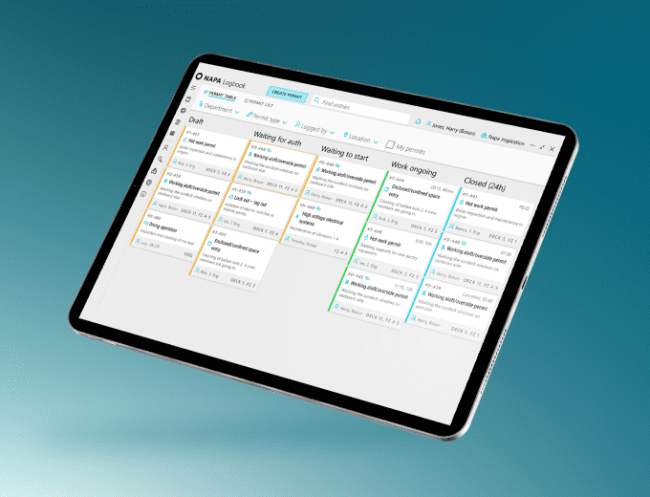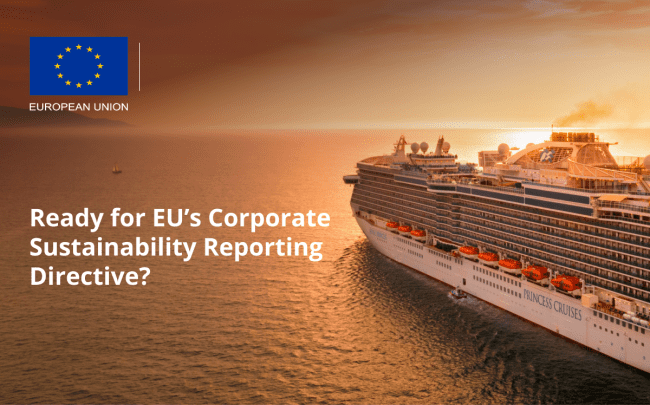Bored of paperwork? Join the revolution of electronic logbooks!
By Mikko Forss, Sales Director, Americas, NAPA Ltd.
What item can be found onboard all modern ships that’s basically unchanged since the earliest days of commercial shipping? Well, there’s a few answers. But the most common one is traditional paper logbooks. They’ve lasted a long time for good reasons. They’re robust, well known by the officers and engineers, and very affordable.
But do traditional paper logs offer automatic back-ups, version control, data analysis capabilities, and transparency to everyone involved in a ship’s operations?
Electronic logbooks are of course more expensive than traditional paper logs, but so is typewriter than pen and paper or computer vs. typewriter. Who would write documents anymore with pen and paper when we have computers? Electronic log books are breathing new life into an old standard and setting a completely new benchmark for what can be achieved.
Cruise industry is leading the way
The cruise industry has been one of the earliest adaptors of electronic logbooks. What started as a simple replacement for paper logbooks, has today evolved in to a complete solution for record keeping, situational awareness, voyage reporting, checklists, and data analytics.
Several cruise lines have adopted NAPA’s complete electronic record keeping and information sharing solution including NAPA Logbook, NAPA Status Board, NAPA Voyage Reporting, NAPA Decision Support and NAPA Office web portal. In fact, NAPA Logbook has more than a decade’s service on board vessels serving more than 8,000 users and it is approved by more than 20 major flag states, including the Bahamas, Marshall Islands, Panama, Malta and Singapore.
When I speak to these users, the feedback I consistently hear is how the value of electronic logbooks for them is in digital data that is accessible, searchable and available anywhere onboard and onshore. It also doesn’t hurt that the eLog data is totally secured and backed up remotely. This combination of factors gives them the ability to map events with the operational status by combining automated data feeds with human input. Knowing, for example, what the bridge condition was at the time of an incident can provide valuable insight.
Changing regulations
It’s not only the superior UX, transparency and analysis capabilities that’s driving the transition to electronic logbooks from the good old trustworthy paper logs. A correspondingly large driving force is the regulations which are being revised to accept electronic logbooks or eLogs, as they are often referred.
IMO is currently working on several levels to unify the requirements for electronic logbooks. For example, IMO is expected to adopt guidelines for using logbooks under MARPOL (e.g. Oil Record Book or Garbage Book) in the 74th session of the Marine Environment Protection Committee (MEPC) in May 2019. These guidelines would enter in to force in 2020.
Another example is The International Convention for the Control and Management of Ships’ Ballast Water and Sediments (BWM Convention) that entered into force on 2017. The BWM Convention, regulation B-2, requires that all ships have to carry a Ballast Water Record Book. NAPA offers of-the-self solution for ORB and BWM logs, among other regulatory and customizable operator specific logs.
If you’ve found this interesting and would like to discuss how it could help your fleet, I’ll be at Seatrade Cruise Global from 8-11 April in Miami, USA.


